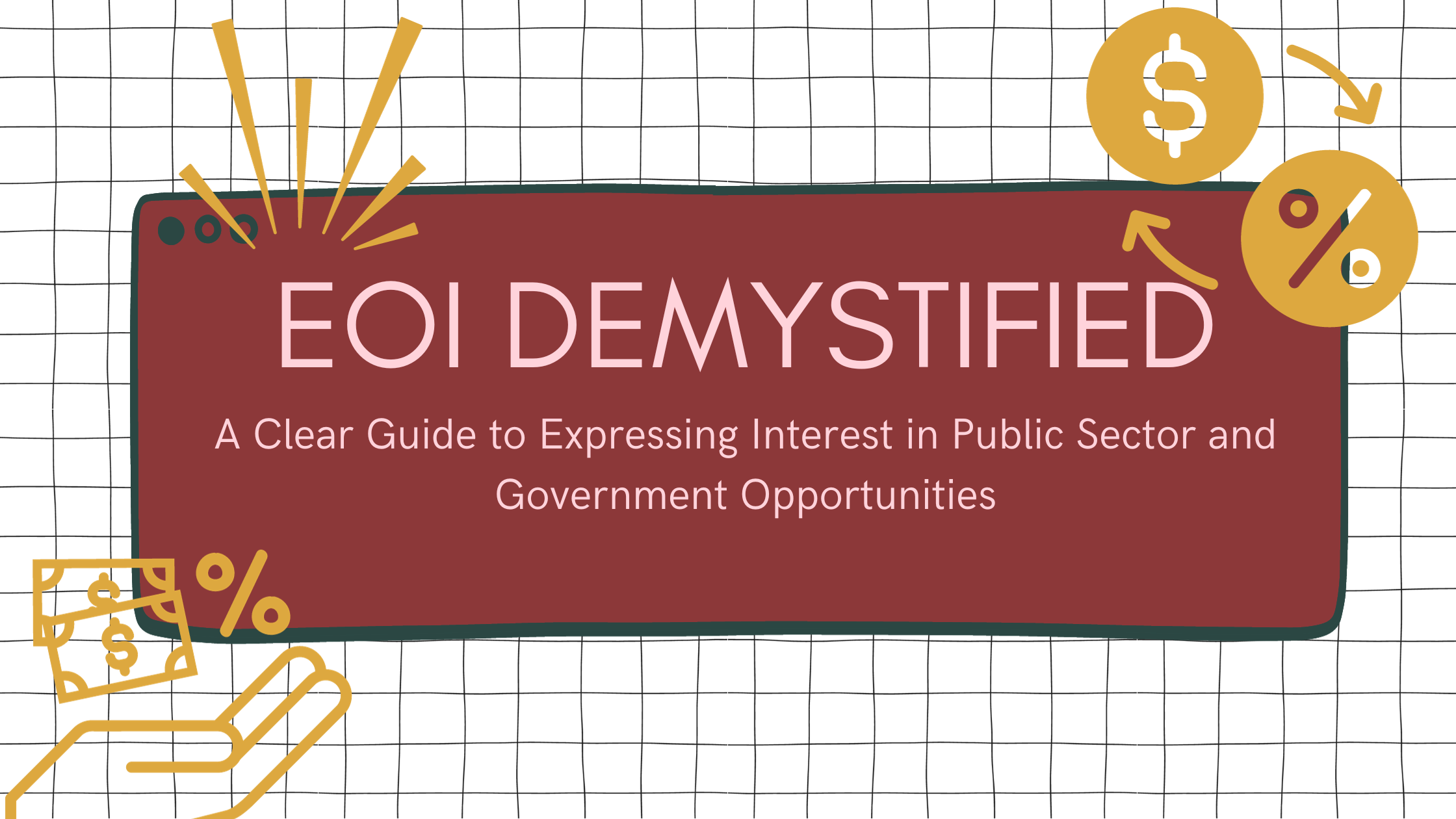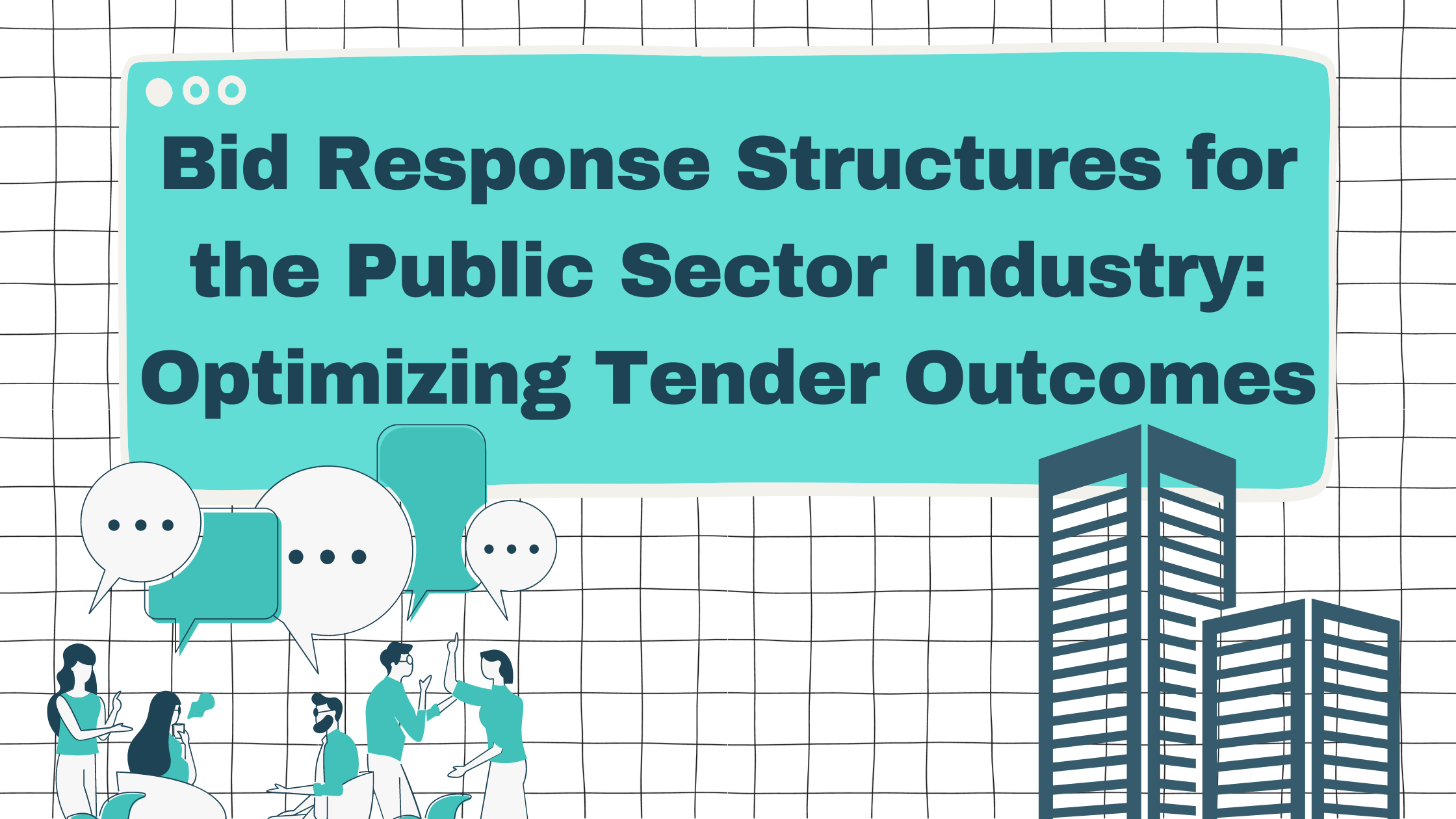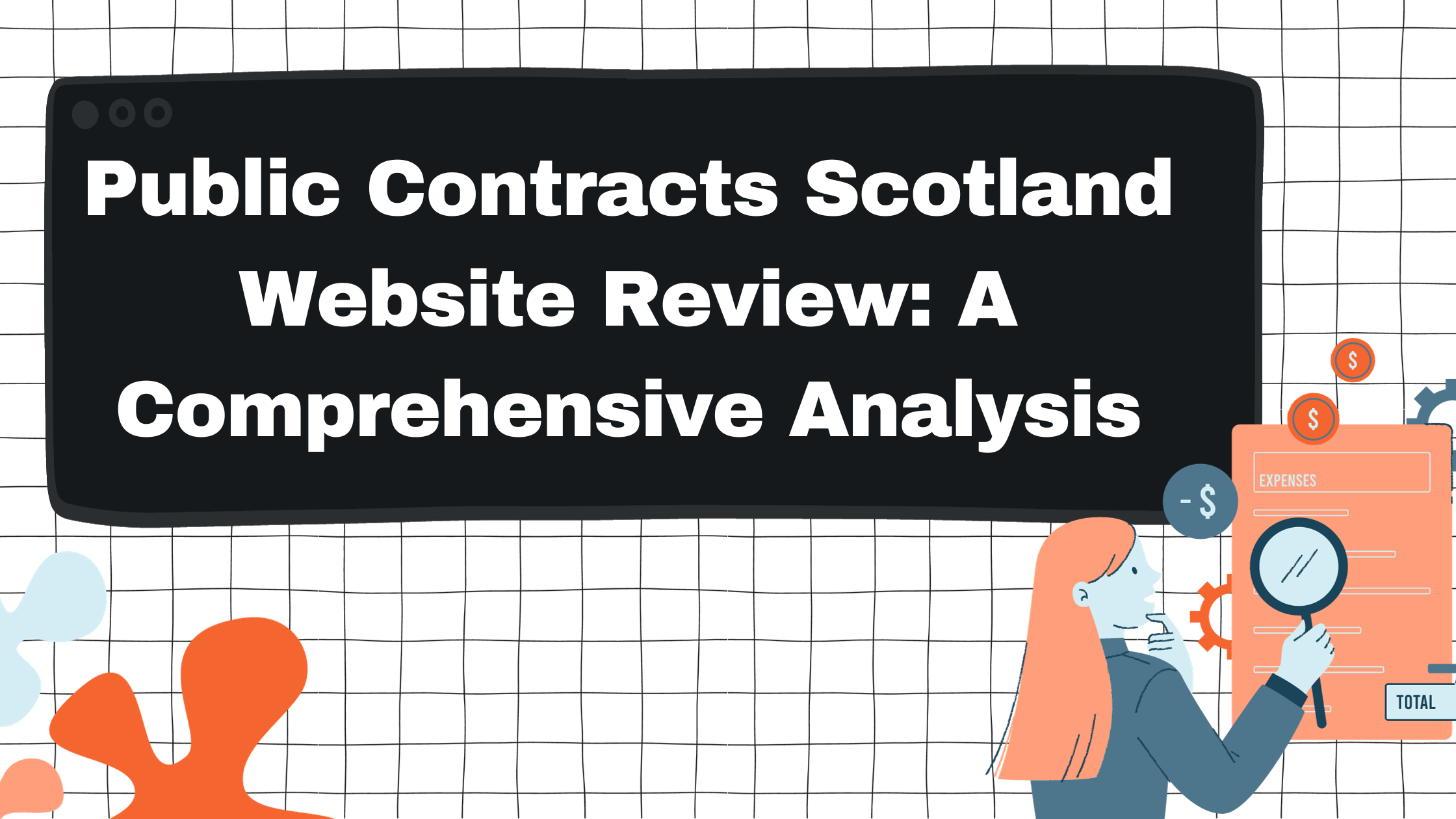Optimizing Proposal and RFP Writing Services for Government Contract Success

Need Help with Your Bid?
Get in touch by filling out the form and one of our advisors will be in contact.
Contact UsHow Government Contract Consultants Optimize Your Bidding Process Efficiency
In navigating the competitive world of government contracts, many organizations face the challenge of crafting compelling bids that not only meet stringent requirements but also stand out among a sea of competitors. As an SME, I understand the intricacy of this process and the value that government contract consultants bring to the table. These experts specialize in streamlining the bidding process, leveraging their in-depth understanding of government procurement to give businesses, especially smaller enterprises, a competitive edge.

My experience has taught me that the involvement of a government contract consultant can dramatically improve an organization's approach to bidding. Their expertise covers the entire spectrum of the bidding process, from identifying suitable opportunities and comprehensively understanding the requirements to developing a strategic bid aligned with governmental expectations. By employing their services, I've observed that businesses can save time, allocate resources more efficiently, and ultimately increase their chances of winning contracts.
Key Takeaways
- Consultants can enhance bid quality and compliance with contract requirements.
- Their strategic input can lead to more efficient resource allocation.
- Expert advice may increase the likelihood of securing contracts.
Understanding the Government Contracting Landscape

When delving into the realm of government contracting, it's crucial to comprehend the intricacies of the landscape. The rules of the game are established by laws and regulations which shape every aspect from the pursuit to the execution of contracts. Expertise in public procurement and a solid grasp of the procurement process govern the successful navigation of this competitive arena.
Navigating Public Sector Contracts
In my experience in understanding public sector contracts, it's clear that they differ from private sector agreements in both structure and complexity. Public procurement is governed by stringent legislation aimed at optimizing transparency and fairness. Appropriately leveraging tools such as the Contracts Finder is essential. This platform allows consultants like me to identify potential contracts, access relevant details, and assess emerging public procurement trends to better advise clients.
Key components to consider include:
- Legislation: The Procurement Act 2023, for instance, dictates procurement norms.
- Certification and Compliance: Ensuring adherence to governmental standards.
- Submission Deadlines: Deadlines are fixed and missing them can disqualify a bid.
It's also important to recognize the influence of the public procurement playbook on the procurement strategies that public entities will follow.
The Importance of Procurement Process Knowledge
Procurement process knowledge is paramount. I've seen how an in-depth understanding of the procurement process, including the evaluation criteria and the scoring system, can empower consultants to tailor bids more effectively. The latest changes through the Procurement Act 2023 underscore the evolution of procurement practices and highlight the need for up-to-date expertise.
Important aspects to keep current on include:
- Bid Packages: Detailed insight into required documents and bid formats.
- Types of Contracts: Familiarize oneself with various contracting methods and requirements.
- Bidding Process: Understand the steps from bid submission to final awarding.
Absorbing the intricacies of this landscape allows me to provide clients with a significant competitive edge in securing government contracts.
Strategic Preparation for Bidding
When preparing for a bid, I focus on creating a comprehensive approach that includes building a solid bid library, meticulously analyzing tender documents, and ensuring that all necessary qualifications and certifications are in order.
Developing a Robust Bid Library
I start by accumulating a robust bid library, which becomes the cornerstone of efficient tendering. This repository contains past proposals, templates, and key responses that are sector-specific. It allows me to quickly access and tailor information that aligns with new tender specifications. For example:
- Project Descriptions: Summaries of previous relevant projects
- Case Studies: Demonstrating outcomes and measures of success
- Standard Forms: Pre-filled with my company's details
- Evidence of Quality: Certificates and awards
Tender Document Analysis
Tender document analysis is critical to understand the client's needs deeply. I dissect the tender to identify the core evaluation criteria and specific contract requirements. By aligning my bid with the client's strategic goals, I ensure my proposals are tender ready:
- Compliance: Ensuring all mandatory specifications are addressed
- Scoring: Focusing on areas with higher evaluation weight
- Questions: Clarifying any ambiguities with the client
Qualifications and Certifications
In the bidding process, showcasing my qualifications and certifications is essential. These affirm my credibility and capability to deliver the contract. I constantly ensure that all my certifications are up to date and relevant to the sector-specific portals I am engaging with:
- Accreditations: Professional bodies relevant to my work
- Certifications: Such as ISO for quality management systems
- Education: Degrees or qualifications supporting expertise in the field
By methodically preparing for the bidding process, I enhance my chances of crafting a winning proposal that meets client demands and exceeds expectations.
Key Aspects of a Winning Bid
Winning a government contract requires more than a competitive price; it necessitates a bid that demonstrates a deep understanding of the project's needs and clearly articulates how my team and I will deliver exceptional results. Here, detail the components I focus on to increase the likelihood of success.
Articulating Technical Ability and Innovation
To convince the evaluating committee of my technical ability, I meticulously outline how my team's expertise aligns with the project's requirements. I emphasize any unique methodologies or tools we'll use, asserting our capacity to deliver high-quality outcomes. Innovation plays a crucial role here; showcasing our use of cutting-edge technology or inventive solutions often helps set our bid apart, evidencing our commitment to not just meet, but exceed, project expectations.
Highlighting Social Value and Sustainability
I ensure that my bid reflects a strong commitment to social value and sustainability. This involves presenting detailed plans on how we'll address issues such as climate change, economic inequality, and health and wellbeing. My proposals include specific strategies on reducing environmental impact and creating equal opportunities within the community, illustrating that my approach is about delivering value that extends beyond the mere scope of work.
Crafting a Compelling Executive Summary
A clear and poignant executive summary is vital. It is an encapsulation of the entire offer, distinctly reflecting the benefits of selecting my bid. Here, I clarify the primary advantages my team offers and concisely summarize our approach to the project, ensuring that decision-makers grasp the essence of our proposal quickly and conclusively.
Effective Management and Tools for Bid Writers

In my experience, effective management combined with the right tools significantly enhances the quality and competitiveness of tender responses. Let's explore how leveraging a well-coordinated team along with specialized software can optimize your bidding process.
Leveraging Team Experience and Expertise
At the heart of every successful tender response lies a qualified and professional team that draws upon a wealth of experience and a strong track record. I ensure that each team member's expertise aligns with the tender requirements, fostering an environment where collaboration and project management are seamless. Having a tender mentor or someone from Hudson Succeed, for instance, amplifies this effect, offering bid writing support rooted in years of hands-on bidding successes.
- Project Alignment: Match team member skills with specific project needs.
- Continuous Learning: Encourage knowledge sharing to improve tender improvement strategies.
Optimizing with Tender Writing Software and Tools
To complement team expertise, I integrate tender writing software and tools into the process. These technologies offer streamlined project management features, enabling me to keep a close watch on all aspects of the tender. From equipment and resource allocation to deadline reminders, these tools have been crucial for ensuring that no detail is overlooked.
- Advanced Software Features: Use software that provides enhanced data tracking and analytics for more informed decision-making.
- Efficiency Tools: Implement contract management tools from sources like Four for notifications, alerts, and risk mitigation.
I find that when these elements are combined skilled team and top-notch software it sets the stage for a consistently high-quality, competitive bidding process.
Post-Submission Considerations
After submitting a tender for a government contract, my focus shifts to understanding the evaluation process and leveraging feedback to enhance future bids. Insights into how my proposals are judged and the specific criteria assessed becomes crucial for ongoing improvement. It's not merely a waiting game; it's an opportunity for strategic development.
Understanding Evaluation and Scoring
To comprehend how my bids fare, I examine the evaluation and scoring criteria outlined by the contracting authority. Typically, this includes meat or the Most Economically Advantageous Tender, which balances quality against cost. Authorities usually assess:
- Value for money: Did I demonstrate that my offering provides the best return on investment?
- Customer service: Have I shown a robust plan to deliver excellent service?
- Accessibility: Is my proposal inclusive, accounting for a wide range of needs?
In addition, evaluators consider how well I have managed risk, ensuring that the potential obstacles are identified and mitigating strategies are in place. Every detail counts, and so before submission, I meticulously proofread my documents and ensure all statistics and CVs reflect the highest level of accuracy and relevance.
Utilizing Feedback for Future Tenders
When I receive feedback, it's more than a critique; it's a treasure trove of information. Whether my bid is successful or not, I use the evaluators notes to refine my approach for future tenders. I pay attention to comments on:
- Scoring: Which sections of my proposal scored well and which didn't? What patterns can I discern?
- Timeframe: Did I demonstrate an understanding of the project timeline, and was my proposed timeframe realistic?
Listening to feedback is key to developing a pattern of continuous improvement. This ensures that with each submission, I am increasingly aligning my bids with client expectations and industry standards.
Frequently Asked Questions
Navigating the complexities of government contract bidding can be daunting. As a government contract consultant, I play a vital role in simplifying this process with strategic expertise and hands-on support.
What strategies do consultants recommend for improving the efficiency of the bid process?
I advise clients to tailor their approach to each opportunity by conducting thorough market research and competitive analysis. Having a clear understanding of the client鈥檚 strengths also enables me to implement process improvements, like setting up a structured bid/no-bid decision framework to save time and focus resources where they have the highest chance of success.
Can you explain the five key steps to developing a winning bid proposal?
Certainly. The first step is understanding the client's requirements and aligning them with your unique value proposition. Second, gather a cross-functional team to brainstorm and outline your solution. Third, draft a proposal that articulates how your solution addresses the client's needs. Fourth, review and refine this proposal for clarity and impact. Finally, ensure compliance with all submission guidelines before submitting the proposal.
What are the essential components of a successful tender proposal?
A successful tender proposal comprises clear articulation of the client's problem, a detailed and cost-effective solution, robust proof of past performance, and strict adherence to the client's submission format. I emphasize presenting a compelling narrative that exemplifies understanding, feasibility, and the benefits of choosing my client's offering.
How can consultants assist in the preparation of bid documents to enhance chances of winning?
I leverage my expertise to ensure bid documents are comprehensive, persuasive, and polished. I help clarify the value proposition, make the case for why my client's approach is superior, and ensure all technical responses are accurate and fully compliant with tender requirements.
What is the role of a consultant in each of the four stages of the bidding process?
During the pre-solicitation phase, I help with intelligence gathering and positioning. In the proposal development stage, I oversee the creation of a responsive, persuasive proposal. During the post-submission phase, I offer support with follow-up queries and presentations. Finally, if the bid is successful, I provide assistance with contract negotiation and transition planning.
How do consultants help organizations in crafting compelling bid requests?
I assist organizations by formulating bid requests that clearly define their needs and criteria for selection. This is critical for attracting bidders with the right qualifications and ensuring that the responses received are from vendors who truly understand and can meet the organization's needs.
Ready to start your search?
Get in touch by filling out the form to the right and one of our advisors will curate a personalised selection for you.
Get in touchBlogs. Guides. Helpful advice.

Mastering Proposal and RFP Writing for Government and Public Sector Opportunities

Proposal and RFP Writing Services: Enhancing Public Sector Tender Outcomes

.svg)